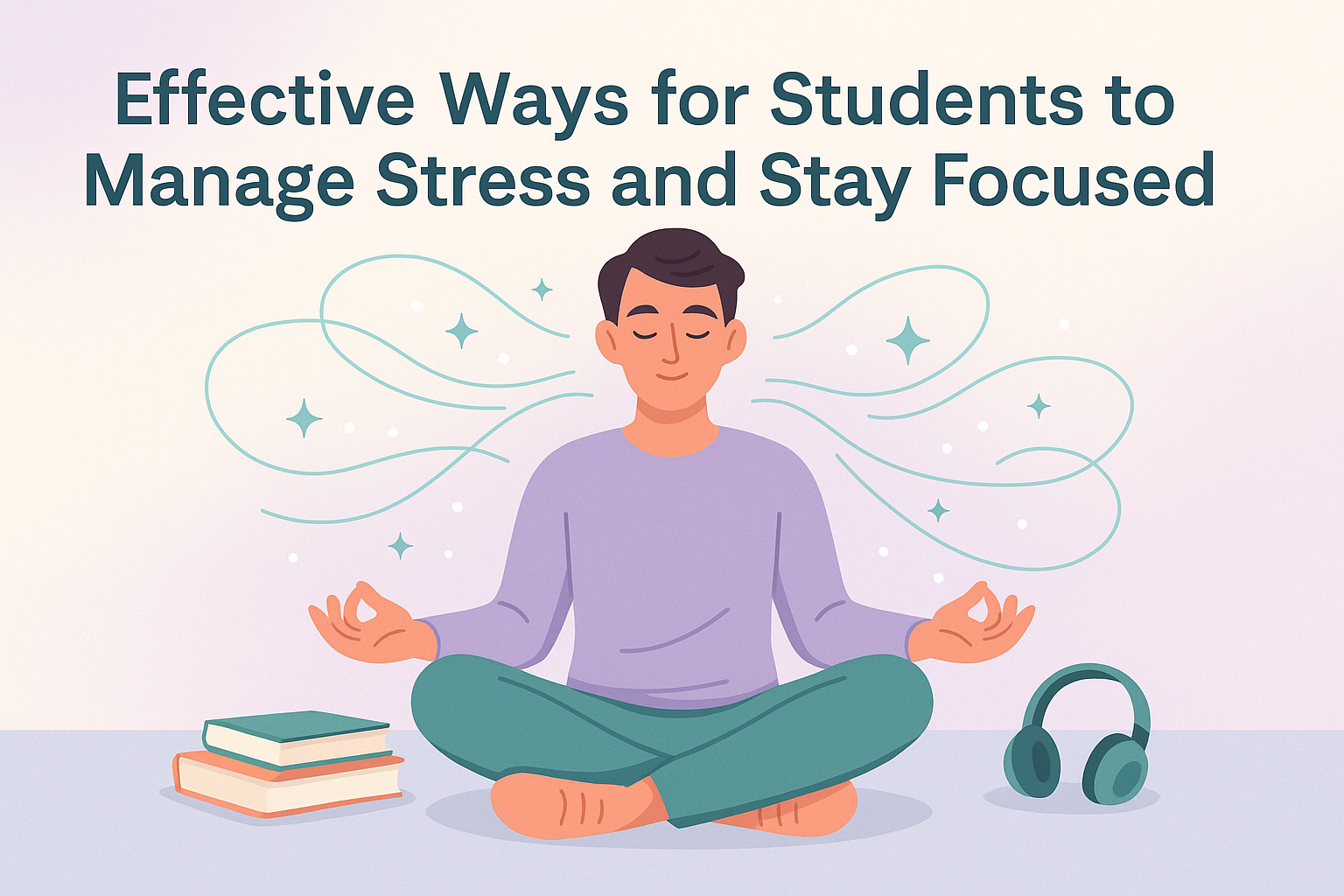How to Be Happy: 12 Simple Habits to Boost Joy and Well‑Being
Quick Summary Why Habits Matter for Happiness If you’ve ever wondered how to be happy in a more lasting way, not just on good days,

There are several ways to improve focus naturally, though some have more scientific support than others. Because everyone’s brain is different, it may be helpful to try a variety of techniques to find what works best for you.
Focus is the mental energy you channel toward a specific task or activity.
It’s often confused with attention span, which is the amount of time you can stay focused on something without getting distracted.
Both focus and attention span can vary from person to person. Factors like age, sleep quality, and the ability to filter out distractions all play a role.
Certain health conditions, such as brain injuries or age-related cognitive changes, can also impact your ability to focus and remember information.
One of the lesser-known benefits of regular physical activity is its ability to improve focus. Exercise increases blood flow to the brain, supports mental clarity, and helps regulate mood—all of which contribute to better attention and cognitive performance.
A 2018 study found that just four weeks of daily physical activity led to noticeable improvements in both focus and attention.
And it’s not just kids who benefit. A 2020 study found that adults over 45 who stayed physically active experienced less self-reported cognitive decline than those who led more sedentary lifestyles.
In addition to enhancing focus, regular exercise may also:
Whether it’s a brisk walk, yoga, or strength training, moving your body regularly is a powerful way to support both brain and body health.
Constant notifications and digital overload can scatter your attention. Setting healthy boundaries around screen time—especially social media and multitasking on devices—can help your brain stay focused for longer periods.
Not getting enough sleep can make it harder to focus, remember things, and stay alert. While occasional sleep loss might not be a big deal, regularly missing out on rest can affect your mood, performance, and long-term brain health.
Sleep deprivation can also slow reaction times and make everyday tasks—like driving or working—more difficult.
Most adults need 7 to 8 hours of quality sleep per night to support focus and cognitive function. Prioritizing rest, even with a busy schedule, can make a big difference.
Mindfulness and meditation practices have been linked to better focus, mental clarity, and emotional balance.
A 2023 study found that mindfulness may enhance the brain’s functional efficiency and support neuroplasticity—the brain’s ability to adapt and reorganize. This could help boost focus, attention, and other cognitive functions.
And meditation isn’t limited to sitting still. Yoga, deep breathing, and even mindful walking can offer similar brain-boosting benefits.
What you eat can directly impact your focus, memory, and overall brain function. Diets high in processed foods, sugar, or unhealthy fats may make it harder to stay mentally sharp.
To support better focus, include more brain-friendly foods like:
Don’t forget hydration—even mild dehydration can impair focus and short-term memory, so aim to drink water regularly throughout the day.
Working in short, structured intervals can help you maintain better focus and avoid burnout—especially during long tasks. One popular method is the Pomodoro technique, which involves 25 minutes of focused work followed by a 5-minute break.
This approach gives your brain time to reset, making it easier to stay engaged and mentally alert. After four work cycles, take a longer break (15–30 minutes) to fully recharge.
Some studies suggest that short breaks during mentally demanding tasks can help prevent fatigue, boost productivity, and improve overall cognitive performance. It’s a simple but effective way to work with your brain—not against it.
Multitasking may seem like a time-saver, but research shows it often does more harm than good. The brain isn’t built to handle multiple tasks at once—instead, it switches back and forth, which can drain mental energy and reduce your ability to focus.
This constant task-switching means you’re never fully engaged in any one activity. When possible, try focusing on one task at a time—you’ll likely find it easier to stay productive, make fewer mistakes, and feel less mentally exhausted.
While more research is needed, certain nutrients may support concentration and overall brain function.
We’ve also found a little extra support goes a long way. When we need a mental edge, we personally reach for Brain Gummies and the Focus Tincture—two simple additions that help us stay clear-headed, calm, and on task.
Everyone’s brain works a little differently, so it’s about finding the right tools that work for you—whether it’s a mindfulness break or a brain-friendly supplement.
Talk to your doctor before starting any supplement, especially if you have underlying health conditions or allergies. They can help you weigh the potential benefits and risks and recommend options that are safe and right for your needs.
Quick Summary Why Habits Matter for Happiness If you’ve ever wondered how to be happy in a more lasting way, not just on good days,

Quick Summary What Is a Sleep Profile When most people hear “sleep quality,” they think only of duration or whether they fall asleep easily. However,

Quick Summary Why Sleep Trends Matter We often think of sleep as passive. But in 2025, rest is becoming a priority in wellness. Thanks to

Quick Summary What Is Excessive Daytime Sleepiness? Excessive daytime sleepiness (EDS), also known as hypersomnia, is the persistent struggle to stay awake and alert during

Quick Summary What’s Actually Causing Student Stress? Let’s be real, school can be a lot. It’s not just about keeping up with grades. Many of